Hello Lab Muffin readers! Over the last couple of years you’ve probably noticed a few changes here – the launch of my YouTube channel, the growth of Instagram, my eBook debut, the gradual transition from shorter, more frequent content to longer, more in-depth posts, and the appearance of some larger sponsored projects.
I’ve had lots of thoughts swirling around my head over the last few months about these changes, and some really interesting discussions with followers and other content creators. So I thought I’d give you all an insight into the reasoning behind my choices, what it means for the content here, and where Lab Muffin is going. Hopefully it won’t be too self-indulgent or self-pitying!
The Time Conundrum
I started making videos in April 2017. I was a bit bored of just writing, and from my science education day job, I was becoming more aware of the limitations of explaining science using just text. I wanted animations!
Video-making turned out to be tons of fun, and really opened me up to making new types of content, like the time I stuck tape all over my face, or the time I used a microscope to look way too closely at my foundation clumping. It’s also been a great way to spread the pro-science message to a wider audience.
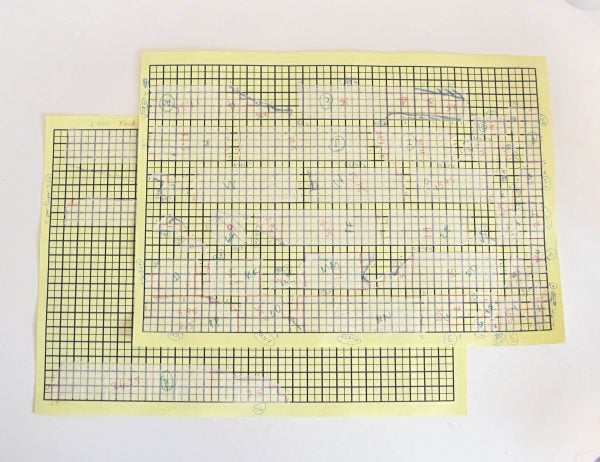
Unfortunately, it turned out that making videos is a massive time suck. A satisfying time suck, but a time suck all the same. A typical blog post would need maybe 10 hours on average (science-heavy posts take longer, reviews take less time but there’s also testing), and I can generally write one a week around the rest of my schedule. Videos take far longer, especially editing.
So along with working full time at my day job, I’ve also been working on Lab Muffin content for at least 1.5 days every weekend (and by “day”, I mean 9 am til 11 pm). On top of that, I’m answering emails, sorting out technical website/mailing list/computer issues, and replying to blog and Instagram comments before and after work – and this extra administrative work has increased with the number of people checking out my content (this is definitely not a complaint about more people being interested in science – just a necessary side effect of that).
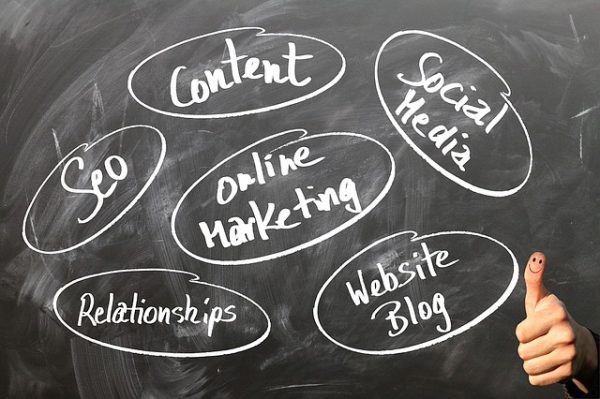
I’ve documented my attempts at squeezing more time out of every day before, but there’s only so efficient you can be before you can’t effish any more. It’s been difficult trying to have a social life and relaxation time as well – I don’t watch TV anymore, I’m constantly behind on chores, and eventually my friends will all give up on me after rescheduling for the 50th time because a video needs editing and I only have 6 hours of weekend left.
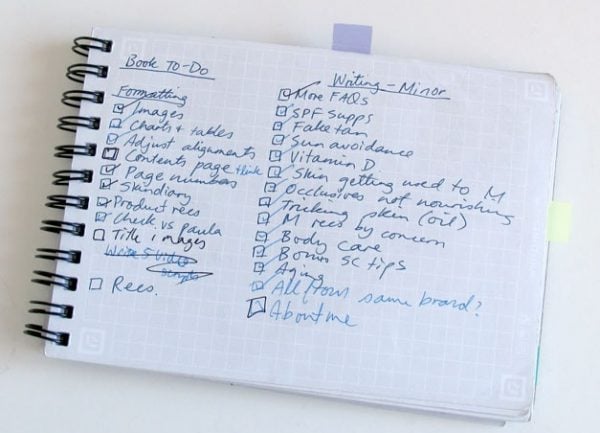
I’m also constantly behind on creating content. It’s been difficult for me lately to find a solid length of time to sit down and get really deep into a subject. As some of you know, I’ve been meaning to tackle topics for months or years (Red light! Pregnancy skincare! Alcohol in skincare! Sunscreen sprays! Fragrance! Diet and acne!) and the To Do list just keeps getting longer.
“Blog income”?
I’ve never been very money-driven (science and education aren’t exactly the most lucrative fields). I’ve been working on Lab Muffin since 2011, and there were losses for the first 6 years without even counting product purchases. My main motivation is just that I love teaching science, and breaking down difficult concepts to digestible chunks.
I also feel like it’s important work, as egotistical as that may sound. Scientifically accurate, accessible information isn’t as common as I think it ought to be in the beauty space, and I’m fortunate enough to have the educational background and communication skills to contribute (what in my opinion is) valuable and necessary content.
But: bills exist, and website hosts, mailing list providers, microphones and pH strips cost money.

So the logical thing to do, from a practical and mental health perspective, would be to try to generate some income from Lab Muffin so I can scale down my day job, and get more time to create the content that you all come here for. (And potentially, in the distant future, hire extra help and pay them fairly.)
But if you know anything about making money from digital content creation, you’ll know it’s notoriously unstable. So I’ve been trying to diversify, and I’m finally at the point where I feel like I can safely cut down on hours at my day job (as of around 96 hours ago!). This is incredibly exciting, since over the years I’ve gotten used to thinking of Lab Muffin as a passion project that would never break even financially.

(I still love my day job – it’s nice having a steady source of income and collaborating with passionate science educators from other specialties, so I have no plans to leave it completely yet!)
Here are some of the income sources I’ve been using, and my reasons:
Blog ads
Blog ads are a significant source of revenue, and I think it’s the best compromise from a bias/subjectivity/intrusiveness angle. I know they can be annoying, but it means that the incentive for me is to create content people want to see, and to keep everyone engaged until the end, which is a win-win situation.
Of course, ad revenue is based on views, so that does mean that ad-blockers will prevent me from earning anything. So if you’d like to support me and the ads don’t bother you too much, turning off your ad-blocker on my site would be much appreciated.
(Side note: YouTube ad income is pretty insignificant, unfortunately – you have to be huge for it to be useful!)
Amazon affiliates
Amazon runs the largest affiliate program, where if you click on a link to Amazon and make a purchase, a small percentage of the profit goes to me (the price to the customer is the same regardless).
In terms of objectivity, it’s also really good since Amazon sells pretty much everything, so I don’t feel particularly pressured to review anything more positively. Unfortunately beauty products tend not to be high priced items, so the income from this isn’t that great… but Amazon does pay commission on any purchase made after clicking the affiliate link, so a few times I’ve been paid commission on mattresses and the like.
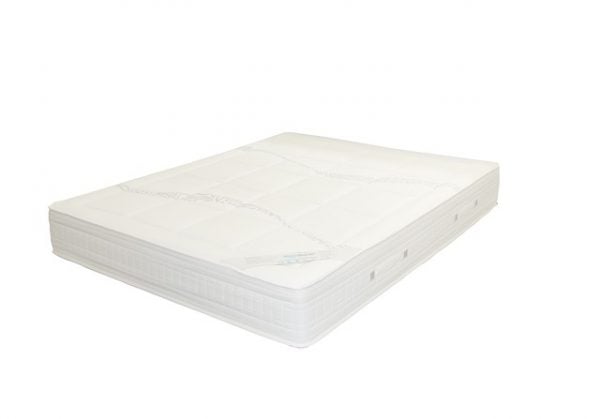
The main issue I have is really just promoting Amazon, with its questionable company ethics.
eBook
I wrote an eBook and started selling it last year. It was a huge time investment, but it was very rewarding to produce something I’m really proud of.
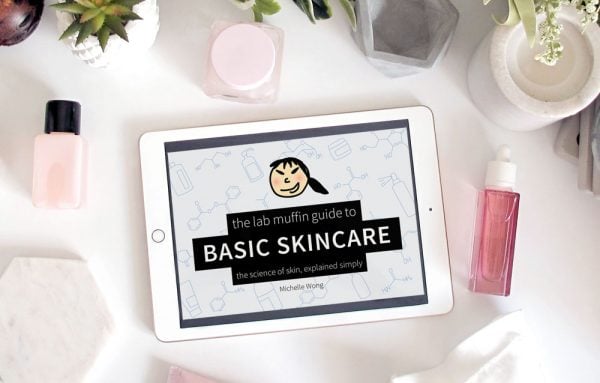
Most of the information is available on my site in some form already, but I thought some people would be happy to pay a reasonable amount (less than the price of one or two beauty products) to have it organised and collated and pretty. At the same time, a few people were asking me if there was some way to financially support me – so this worked out well!
Unfortunately I haven’t had time to write the second book, on active ingredients – but hopefully soon.
Merchandise
As you might have seen there’s a Lab Muffin store, with chemical-covered mugs and makeup bags.
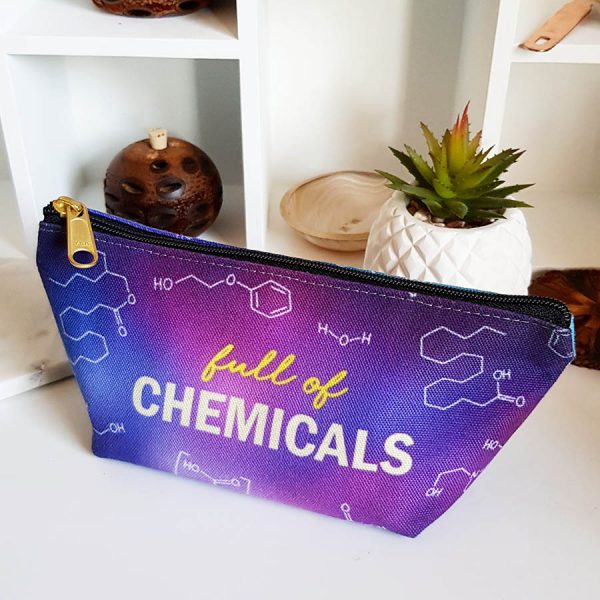
I’ve chosen to use a start-to-finish fulfillment service to manage this, so I can save time wrapping parcels and posting things, and make content instead. This means that I don’t end up making much on physical products at all, but since the real reason I made the products was because I personally wanted them, I’m fine with that.
Working With Brands
Blogger-brand relationships are one of the more mysterious parts of blogging, so I’m going to try to shed some light on how I operate here. Different bloggers approach it in different ways, so this isn’t indicative of what anyone else is doing!
Disclosure and Transparency
I’ve always disclosed PR samples, sponsorships and affiliate links (my site policies are here if you haven’t seen them before). It’s a legal requirement in some countries to disclose, even though it isn’t (yet) in Australia. On the internet though, where it isn’t apparent which country someone is in, I think it’s much better to disclose to avoid confusion.
I try to disclose in an obvious location, as clearly as possible what the relationship is, and avoid “gifted”, “partner”, “spon”, “collab” and other ambiguous terms as much as possible.
I’ve seen some bloggers say they’ve been told that disclosing comes off as bragging, but I think transparency is more important – the “bragging” accusations usually come from other bloggers and influencers (yes there is a fair bit of petty infighting), who are not the majority. In the Instagram poll I posted asking if people felt that disclosure was important, 95% of respondents voted for disclosure (2908 for “keep disclosing”, 143 for “no need”).
There is one major downside to transparent disclosure – it does tend to invite comments about how you can’t be trusted to be honest if it’s a press sample, or if it’s a sponsored post. Ironically, these sorts of comments incentivise bloggers to be less transparent, especially when you can see that someone else posted the same products, didn’t disclose and is avoiding the hate train. Brands also see these comments, and pressure content creators to not disclose, or tuck the disclosure away somewhere less visible.
I have more thoughts on conflict of interest which I’ll elaborate on below…
PR (Press) Samples
PR or press samples are products that a brand or PR company gives to bloggers and media for a review that isn’t guaranteed. I‘ve been receiving PR samples since a few months into blogging, and I’ve always disclosed these on all relevant content.
There’s the obvious issue of conflict of interest – it seems to make sense that if you’ve been sent a free product, you’re more likely to feature it, and give it a positive review since you don’t want to offend the brand and jeopardise the relationship. But I think there’s less of an influence than there might appear to be, for a few reasons.
Bloggers get a LOT of product. If you’re a blogger or Instagrammer, you’ll know that once you reach a certain audience size, the PR samples start streaming in and it’s not long before you’re getting more than you can reasonably use, or even give away to your friends and family. It’s relatively cheap for companies to flood influencers with products, since cost price is well below retail price – and it’s much cheaper than actually paying them.

It does work out well for content creators, since buying new products all the time to review is expensive. But the large quantity of product samples means:
- Bloggers can’t review everything they get sent, so there’s still a selection process involved in choosing which products to try out and write about.
- It seems ungrateful to complain about free products, but the sheer volume of product is actually kind of annoying. The thrill of free products wanes when you’re tripping over products all over your house, so there isn’t that much incentive to give products positive reviews in the hopes of getting more.
- The incentive to give positive reviews is so the company will continue to send you more product. If it’s a good product, that’s great! If it’s a bad product, that’s useless (plus there’s the no-space-in-your-house issue). That means you’re incentivised to give good products good reviews and bad products bad reviews (or no review)… which is the desired outcome, anyway.
There are also biases with products that you purchase yourself. Post-purchase rationalisation, for example, is a type of choice-supportive bias where you don’t want to believe that you’ve made a bad choice, and this bias is more pronounced with more expensive purchases. (AliceInTheRabbitHole has a video that runs through some of the biases you might encounter with beauty products.)
However, there are still other biases at play with PR samples. There’s selection bias – if a brand sends me a product and it lands on my desk with minimal effort, I’m more likely to review it than if I need to hunt it down myself. If I’m doing a post on an ingredient, I’m more likely to include a product that’s already on my shelf than one with 4 weeks shipping. It’s convenience, and pretty unavoidable. I’ve also become less inclined to buy products that I already have a lot of, since I have massive guilt hangups about waste. The reciprocity bias also makes us want to repay favours.
I also appreciate it when a brand knows me and my style of content well, and is still willing to send me their products for science-backed scrutiny, rather than send it to someone with less exacting standards.
Regardless, I’ve always disclosed on blog posts, videos and social media when a product is a PR sample (even before it was a legal requirement in any country) so readers can be made aware.
In the wider scheme of things though, PR samples are good for saving money, but you can’t live off moisturiser. There’s just not enough fibre in beauty products to keep ya girl’s guts happy, and they don’t have the structural stability to work well as housing.
Note 1: There’s been a rise in brands offering “contra” arrangements, where bloggers are required to post a review in exchange for “free” product. This is legally a contract (a barter exchange), which brings in messy tax and legal implications, along with the issue that you’ve promised to write a review before you’ve had a chance to try the product out and decide if it’s worth discussing. I don’t personally participate in these unless it’s an expensive product that I can’t afford to try otherwise, and I desperately want to try it (and therefore would have written about it anyway).
Note 2: I sometimes use “gifted” on social media if it’s a service, because of the character limit and it feels weird to call it a sample. But I’m trying to move away from this sort of ambiguous terminology.
Note 3: Some people have also told me that they also appreciate disclosures because it contextualises how much product is “normal”, and makes them feel less like they should be going out and buying everything – which I think is healthy!
Sponsorships
Brand sponsorships are my other main source of revenue. These are where a brand will pay for a blog post, video or Instagram content. I personally disclose these with “sponsored” or “ad”. This is usually where questions about conflict of interest arise most (and justifiably so). I’m going to outline how I try to minimise conflict of interest, and give you an insight into the process.

In general brands approach me with a collaboration in mind, or I might respond to a brief on an influencer marketing platform. I’ve always been very selective with what brands I work with, in terms of their scientific backing, whether I think readers will be interested in them, and whether I’d recommend and talk about them regardless (the logic being that if a company is willing to pay me to make content I’d make anyway, it would be silly not to do it).
I’m also very cautious to make sure the brand is happy with me giving my honest opinion, and don’t want to put words in my mouth – which is usually the case, since it’s pretty apparent if the brand’s seen any of my content.
As Lab Muffin has grown, I’ve had more opportunities to work with brands that align well with my science-heavy content and beliefs, which I really appreciate. I think it’s great when a brand decides to sponsor science-based content rather than the more common surface-level beauty guru content! I also try to make sure sponsored content has useful takeaways for readers, other than just “buy this product it’s amazing” – even if you decide not to buy the product, you’ll leave with valuable information.
Some bias here (and everywhere else) is unavoidable, just from the very fact of us being human. To try to minimise the impact of this bias, I disclose very clearly at the top and bottom of every sponsored post, and both verbally and on screen at the start of sponsored videos (and in the caption as well).
I also try to make sure any paid work is more thoroughly referenced and fact-checked for scientific accuracy than unpaid work – so interested readers can review the accuracy for themselves, and compensate for any inadvertent bias. I’m also open to criticism and revision of anything that’s inaccurate, and I’ve corrected inaccuracies in the past.
Sponsored content is usually sent for approval before publication. As mentioned, I select my collaborations carefully so it’s very rare that I get any pushback on the scientific aspects or the actual review – the amendments are usually things like outdated prices and which retailers they want me to link to, and how the photos and video footage look. A couple of times I’ve had to change the exact wording because of regulatory or legal limitations on what can be said.

In discussions about conflict of interest, I think it’s important to remember that dismissing a positive review just because there’s a conflict of interest is a logical fallacy. As an analogy, take the people working in an Apple store – they’re all being paid by Apple, but it would be silly to think that ALL of them are only endorsing iPhones because they’re being paid, and secretly prefer Android. Even if some of them are just saying it because of their employment contract, it’s far more likely that most of them would recommend iPhones regardless, and that many of them applied to work at Apple because they liked their products in the first place.
If you’re uncomfortable with sponsored content, please consider that it’s subsidising the unsponsored content.
Crowdfunding?
A few readers have suggested crowdfunding to avoid conflict of interest. Crowdfunding is usually done through sites like Patreon, where people can contribute a small amount per month (generally somewhere between $1 and $10), either just to support the creator, or to access special perks, like exclusive content.
I haven’t looked into this option much, for a few reasons:
- If it comes down to getting money from companies or from consumers, I’d rather get money from companies, and provide free educational content.
- I’m not sure what sort of exclusive content would work. I don’t want to make important content inaccessible to people who can’t afford to pay, nor pull time away from making the regular content. (Maybe some sort of monthly Q&A?)
- I don’t know of any successful crowdfunding of beauty content creators. I feel like beauty isn’t a topic that many people prioritise enough to pay for. There are some science content creators that are successfully funded through Patreon, but their content is more “real science” and macho and all that jazz.
I’m sorry if this got a bit disorganised – it ended up a lot longer than I anticipated and it’s 2 am so I’m not the most coherent. But I hope it was somewhat insightful and interesting to read about how the sausages are made at… Lab Muffin Science Sausage Factory? Let me know your thoughts!






Keep up the good work. Your monetization strategies are reasonable. It all comes down to what your audience will accept & your own personal ethics.
I’ve found that it’s really difficult to communicate information that undercuts marketing messages and still get paid as a creator. This has definitely limited the growth of our site. Also, telling people that there is no good solution to a problem they are having (like baldness or cellulite) is not nearly as lucrative as pushing some dubious product. All this is to say, it’s hard making a living as a science-based beauty blogger. It’s good you’re finding a way to keep at it.
PS – You’re right – producing video content is SIGNIFICANTLY more work than blogging.
I love that I now know that Beauty Brains is a fan of Lab Muffin! My favorite two science based beauty content creators in one place! Perhaps a collaboration? Interview Michelle on the show? Both of you have been so helpful in my search for healthier skin. Although Perry, I wish you would give snail mucin more of a chance! It really is amazing!
Thanks to both of you for your hard work!
I agree with Perry’s comment.
I completely relate to this post and as a science-based beauty blogger/educator/creator, it is definitely an intricate balancing act. You want to maintain credibility as a scientist/educator – creating interesting yet informative content in a lucrative way. But it can be a struggle at times.
Keep it up! And thanks for sharing!
A perfect breakdown of the time, blogging and work, thanks for sharing it, I would be applying some 🙂
This sounds just right
“I don’t know of any successful crowdfunding of beauty content creators. I feel like it’s a topic that not many people prioritise enough to pay for.”
Perhaps you could be the first! Or at least include crowdfunding as part of your portfolio. I’d be willing to pay for your content, you’re one of the few voices in skincare and cosmetic science I can trust because you show your work, you cite your sources, and you don’t make unsubstantiated claims. I use your advice on sunscreen application every day!
I could not have said it better myself!
Love your honesty re. sponsored content! Love this post!
I personally would pay if that guaranteed that you’d answer some of my personal questions related to beauty science, because I trust your research process. For example, I’m a patreon of a beauty YouTuber (Aly Art) because she gives her patreons the benefit of having their comments to videos answered, even though the videos aren’t exclusive content: she posts them all in her YouTube channel. Hope that helps. 🙂
Thank you for all the effort you put into creating content. The amount of time it takes is insane. It’s extremely helpful and all of us appreciate it greatly!
Another option for Patreon rewards is early access to content.
I personally support a couple of web comic artists through Patreon, and one of the main rewards is being able to view chapters before they are officially realeased.
I never thought to comment before (just lurking and reading) but thank you for this post. I really admire your ethics and I enjoy reading your work. I admit I don’t usually end up buying anything (i too dislike waste and having too many products waiting to be used and eventually expiring is a huge guilt sink) but I love reading well thought out content just for general knowledge. Have you considered writing on Quora (or maybe you’re already there)?
I can understand why you would prefer to be paid by a select group of companies you feel comfortable supporting rather than rely on individual support that would be less reliable a source, depending as it must, on each person’s personal finances and life priorities which are subject to change with little or no notice. People are funny about money. There will be people expecting instant in-depth answers to million questions specific to their circumstances just because they send you a few bucks each month. Those are the patrons who will get pissed if you don’t jump to answer their questions. Who wants to deal with that?! Do what works for you. I will always appreciate the important service you provide to the public. Thank you,
Thank you for once again being honest and upfront.
This is why I follow you.
I’m in the Aesthetic industry also.
I appreciate what you do.
Dear Lab Muffin
Do what makes you happy. Your ethics and integrity are beyond reproach. You do what’s right for you to move forward as only you know your dreams and goals. Go get there. Your loyal followers will be there for you. You are very very good and you know it. Just keep flying high.
Hey Michelle, really appreciate your transparency and effort to make content alongside your day job. I’ve been consuming your content for some time now and there’s this question I’ve been wanting to ask you. Since you’ve been reviewing countless of beauty products and know what works and what doesn’t, I was wondering whether you have thoughts of creating your own skincare range and beauty brand? I’m sure we readers will definitely change our skincare products in a snap! Just a suggestion that I’ve been wanting to tell you and felt that this is the right time. Sorry for the long comment!
I think it’s perfectly reasonable to get paid for contributing your knowledge, time, and money, especially to promote accurate information. I will be more than happy to contribute to you on platforms like Patreon. I think you can still publish contents on your website, but for contributors, perhaps they can get access to information earlier? Or maybe have a say in what to review/explain next? Or even get personal consultation by you for the few higher tier contributors, some kind of personalized perk.
Your thought process makes sense in choosing partners on what you do based what your ideals are. Keep up the awesome work and preach that science!
I just have to say that I really love your content, as I have discovered there are no other blogs or YouTube channels like yours! As a fellow chemist and beauty and skin care interest, I really enjoy your science based approach. You put so much energy into reviews and your overall contents, and the fact that toy acutally research the ingredients and look up the literature is so amazing. I trust your reviews, if they are PR or not, and I think you deserve to get paid when you put so much energy in to this 🙂
Greetings from Norway ?
First-time poster. Just wanted to add a vote of support. I love your content, but self-care is critical and I hope you don’t burn out. I bought the last ebook and would buy your next one!
This is my first comment ever to a blog! I find your posts so informative. Everything you write! As another commenter said “Keep up the good work “. Looking forward to learning more from you! Thanks.
I feel more comfortable about your sponsored posts after reading this. I mean, it’s not like I assumed you were Going Corporate or anything before, but just the fact that you’re extensively addressing it and clearly Have Thoughts on the whole thing quells some worries about the direction Lab Muffin is headed in.
So, thanks for making this post.
Incredible article! I agree with Perry and the general advice for early access on patreon. A list of supporters at the end of each video could also be an option. I’m not sure about a product line, but it would be really cool if you could go into consulting!
I won’t bore you by parroting what others have said (I’ll just say”Ditto!”), but thought I’d offer a little info on using Patreon in case you decide to go that route.
An awful lot of Content creators and users are disgusted by Patreon; apparently, they make a lot of errors with regard to money (you don’t receive it, and/or patrons have a hard time getting money to you). One of your competitors gave up on it within just a couple months, and took the donation thing in-house. She seems happier and much less murder-y since doing so. 😀
That’s my two cents. Do whatever makes you happy, as everything you said made *me* happy.
(Oh: a fellow above suggested you consider creating your own line. Just wanna say that as soon as Paula Begoun did that, she never saw another cent from me. Seeing her expensive products top all her “best of” lists turned my stomach.)
(PS: Was totally kidding with my “murder-y” comment. She’s totally cool, save for when it comes to Patreon!)
Hi Michelle – I have previously purchased your Ebook. I love the layout and the links to content on your website. I hope you find the time eventually write a follow up. And since you asked so nicely I have whitelisted your site on my ad blocker. I hadn’t really thought about the impact on you. Finally it’s so nice to have an Australian influencer with the qualifications you have. I appreciate your content as it is not all about personal preference or feel – it’s about the science which is objective not subjective.
This has been so helpful and informative. Now when I see sponsored or PR I’ll know the difference.
I always thought merchandise could be quite a reasonable way to make some cash to pay for the domain etc but that was very enlightening.
Thank you!
I love your content even though many of the products are not available in the US. I know everyone is pushing video video video these days, but I’m always happy to see a post that I can just read! You can’t listen to a video in public places like a dr’s office, and I hate having ear buds in all the time while others are watching TV etc, Just sayin that good old blog posts are great lots of times. Plus I can read content a lot faster and refer back to parts of written material much easier.
I understand your train of thought very well – I have struggled with the same things over time.
My platform is way smaller than yours, and like you I have no intent of quitting my day time job that I really enjoy, but if there is a way of earning a little money without compromising your standards, that is amazing and should be celebrated, not frowned upon.
I’ve been reading and following you for some time now and am glad to hear about your transition. I think your reader base has already put a lot of trust in your content. I think all other things have already been said. We’re with you on this. Keep up the good work.
Just writing this post is a really amazing thing to do. Transparency about financials is actually really rare, and it should be more common, so you’re doing a great thing by writing all this out.
Hi Michelle, I’m a big fan of your work and have been following you for a while now. Honestly, I can tell how hard you work on your content and I definitely see how much time and effort it takes to produce such in-depth and well-researched beauty content. Especially with regards to expenses… I definitely spend a lot of money on my domain, buying product etc. It definitely isn’t profitable lol. And for me, I don’t know if I want it to be – I love writing and do that professionally now as a freelance journalist, but blogging has never been about the money for me, it’s more like a portfolio. I know I could probably monetize (I used to use ad links but I stopped because I felt like I was letting it influence what I was writing!) but I’m increasingly at peace with only doing it for fun. I think there’s a lot of pressure to monetize and it can kind of take the fun out imo. I’ve been offered sponsored posts but it’s never felt right for me so I’ve always said no… which might be foolish considering I’m broke but I can’t bring myself to produce content I don’t believe in.
With regards to disclosure, I do think it’s less important to disclose samples but I know a lot of readers prefer it so I always do (though it’s easy to forget…) disclose as a “press sample” or “pr sample”. I don’t like the language of “gift”, because it’s not a gift! It’s work and should be understood as such. It’s not payment either – I don’t owe a brand a blog post in exchange for product! But I do often feel like accepting PR also shapes my content, since it’s a lot easier for me to post about products I’ve received for “free”. I do also feel like PR can make me lose touch with reality – how much things actually cost, what they are worth and so on. So I’ve become more selective in accepting PR, and if a brand sends me something I don’t care to try I’ll send it back or, if that’s not possible, donate it. Generally I find I’m more enthusiastic about products I’ve purchased myself, because I’ve chosen them. So I guess I kind of share your feelings on all this…! I kind of long for a day when I can be a real freelance journo with an office so I can keep my PR samples separate from my personal life.
Also: services like Octoly and Influenster are the bane of my existence. I think they exploit bloggers and I wish people wouldn’t use them. Brands basically use this method to “buy” guaranteed content without actually paying for it!!
This is so far the best explanation of the monetizing options in the field that I’ve got to read or hear. Your strategies and rules are logical and honest.
As for “I’m sorry if this got a bit disorganized” – it’s been as organized as it could and should be. THANK YOU for this and of course, for your content
You are too kind. I spent some time to look for a patreon or ko-fi link but found this instead. I mean if you have done the math and the research and if it is not something you are comfortable with given your philosophy of free education then all power to you. But if you consider that there might be people like me who just want to support you without any demand of bonus content and just want to see you thrive then it would be brilliant if you’d give patreon or ko-fi a rethink. Yours is *the* most educational skincare related content on YT. May the algorithm gods smile on you and you get an M in your follower number before this year ends. All the best <3
I absolutely love the candor and transparency in this article. It is always hard to find such transparency. I 100% agree that just because a blogger received a free sample, it puts some kind of responsibility on them to provide a positive review is too much of a generalization. Thank you for sharing such insights!
I know this is an old post but I am commenting anyway. I disagree with the point of “If it comes down to getting money from companies or from consumers, I’d rather get money from companies, and provide free educational content.” – I disagree because if you provide no extra content on Patreon, the money you would be receiving from consumers would not be for nothing. People want to support causes they believe in. Less science based beauty influencers will happily take your money for nothing. As long as you are clear that there is no extra benefit to subscribing to your patreon. These consumers don’t see it as just to “line your pocket”, it’s to help you create more of this great content.
That’s a good point, thank you! I’ve recently had more people ask me if I have a Patreon they can donate to, I’ll have to chat with some of my scicomm friends about it…